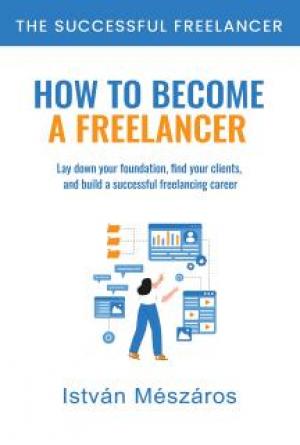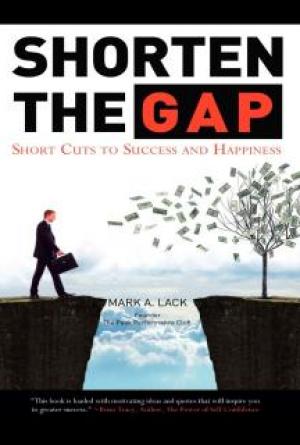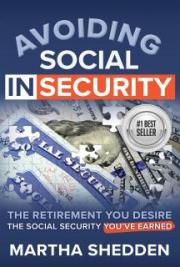By Chris Carlaw Table of Contents:
This is the fundamental question that we all seek to know the answer to.
What do we want to do in life? There are so many choices, how do I stick to just one?
The answer is that you don’t have to. You can have several different jobs in a lifetime. However, this doesn’t negate the importance of career decisions.
The problem is, because there are so many choices out there we can often be stuck in a state where we are not moving because of procrastination.
Procrastination leads us to no decisions and gets us nowhere. At the end of the day, often we have to bite the bullet and decide to take action, which is why I have called my website ‘youth into action’. (www.youthintoaction.com.au)
Reflecting on what we want out of what we are doing for the majority of our working life will constantly evolve and be refined, so this isn’t the only time that you will look into this process.
You may begin your working life and realise that there is a piece of the puzzle missing and you can adjust accordingly to compensate for this.
So, to begin,
how do we find out what we want to do?
One method is to think about what we are good at. If we are aware of what we are good at then we can perfect that through what we do 8 hours a day in our working lives. To a lot of us, this is obvious. To others, it is not so obvious.
Another method is thinking about what fulfils us. The above method may not apply to you because you might be OK at a few things but not great at anything.
What fulfils us essentially means what
we feel good about doing.
What satisfies us at the end of the day may mean helping certain people with technical problems, assisting people to get to great health levels or making people feel good about themselves through their wellbeing and their appearance.
Which one of these do you think you belong to?
Make sure you know why you want to do what you want to do.
You not only need to know the ‘what’ and ‘where’ but also the ‘why’. Why do we want to do this?
Contrary to opinion, it’s not the money, the prestige, the fringe benefits or because my parents said that would be a good choice. A career choice should be based upon what you want to do. The ‘money’ if that’s what you want, will come in time only if you are doing something that highly motivates you.
Motivators for why we choose certain careers include:
o Travel Opportunitieso Freedom
o Outdoor locations
o To assist the disadvantagedo To serveo To supporto To make money
o Justice
o To entertaino To work with the most up to date technologieso The ability to work from homeo To observe and acknowledge what has been built, created or accomplished
Here are some questions to ask yourself in relation to the above motivators:
Do we want to be an environmental lawyer because you like to see justice in the way people treat our surroundings?
Do we want to be a journalist because we have a need to find the truth in certain situations?
Do we want to serve National Defense because we feel the need to serve the country in a patriotic way?
Do we want to be a pilot because of the immense freedom it feels like to travel great distances through the air every day?
Do we want to build houses because it is immensely satisfying to drive by something you have built and say that you were a part of that in some way? These kinds of questions, when written down and answered, you will be able to seek what is really important to you. If this doesn’t work for you, a good idea would be to rank the above list from 1 to 12, 1 being the most important and 12 being the least important to find out what is important for you in a career.
If all else fails, work backwards.
Find out what it is that you don’t want to do to then find out what you then want to do.
Recognise and follow your passions.
You should be doing work that you are passionate about. The more enthusiastic you are about your work, the more successful you will become. There is no way you can fake the enthusiasm some people have for what they do. By doing work in tune with what you are passionate about, you can sustain motivation over the long term to stick at what you do.
I hear you asking ‘I don’t know what im passionate about. What if I don’t have the drive to do anything?’
I hardly believe you. You are passionate about many things, you may just not be aware of what gives you the fire in the belly. It might be a small whimpering cinder right now but when harnessed and combined with direction, can be turned into a burning desire to pursue that path.
They might be small because you have convinced yourself that you wouldn’t succeed, or other people may have told you you never could get to where you wanted to go. You might have pushed those desires aside or into the background.
To find those small burning desires, create a list of what lights you up when discussed with others around you. Here is a list to help you out:
o Being a role model for younger peopleo Working with animals
o Working with numbers
o Sport coachingo Being an Air Host/esso Fixing things such as cars, computers and electronic equipmento Working at heights
o Working as a tour guide
o Working with the elderlyo Musico Art such as painting, sculpting or making pottery
 o Entertaining otherso Writing articles, novels or ‘how to guides’.o Assisting the environment
o Entertaining otherso Writing articles, novels or ‘how to guides’.o Assisting the environment
o Working with plants
o Working in a museumo Working in the Wedding industry (ie as a wedding planner)o Working in beauty such as hairdresser, beautician or makeup artisto Working in a 5 star hotelIf the above list isn’t considered an exhaustive list to you, try using the Australian JobSearch guide as a tool. It has a much more extensive list as there are literally thousands of career options that you can consider. See what lights you up and write those occupations down.
Recognise 5 key employers that you would love to work for
By writing down who you would like to work for, it can make your goals even clearer.
For instance, if you are looking to get qualified in Electrical Engineering, these may be your ‘big five’ companies which you would like to work for.
o Rio Tinto
o BHP
o Fortisque Groupo IBMo Siemens
Better still; opt to aim to work for yourself now or in 4-5 years after having some experience under your belt. Working for yourself can be much more rewarding that working for any company out there and you reap the benefits.
We will find out later why we narrow our focus.
It is the quality of the companies we go for rather than quantity. This in turn assists us with our job applications.
Day 6: Set Goals and stick to them.
Once you know what it is that you want to achieve, then you can start setting your goals. Goals are what keep you from moving forward and achieving the very reason you set out on that career path in the first place.
You should set goals that will keep you motivated such as:
o I want to pilot a Boeing 747 passenger jet
o
I want to become Editor of a magazineo I want to be a best seller authoro I want to work as a zookeeper in a major city zoo
o I want to be in the top 10 real estate agents in the country
o I want to raise a million dollars for the charity im working with
o I want to coach a champion sports playero I want to have a thriving business at home on the internet, and have the freedom to travel.
At the end of the day, your goals really are the most important things to you, whatever level they satisfy you on morally, emotionally, physically and mentally.
If your goal is to have a humble pie shop in the country overlooking a wonderful valley and if this is a motivating force for you, it has the same effect as the above examples.
Of course, once we reach our goals, then we have to replace them with others. .
When we achieve our goals no great or small, we have to replace them otherwise we are not motivated, we just stagnate and not live at all.
Later, we will see how important goals are not only for your motivation, but to get an advantage in your job interviews.
Day 7: Research relevant courses that will get you where you want to go.
What courses will get me to where I need to go? There are a whole lot of educational providers out there offering everything from day courses to diplomas and degrees. It just really depends upon what your career choice expects as standard in the industry.
There is an Education course guide available here to assist you with comparing courses if you are concerned with studying a course at a location that is more known for its high success rate.
Additionally, check my article here on
‘Choosing a University- a 7 step guide’.
What I would certainly look at when considering where you are studying is if the institution has a great careers advisory service. I would also check if it is a University to see what links it has with local industry and companies. Universities that have links with potential graduate opportunities are certainly going to place you in good stead when you finish your course.
Another tip is to research the Universities alumni for those just finished their course in the last year. See where they are working and if they have achieved what you want to achieve.
If not, perhaps it is not the right choice.
You should also consider if you are studying at University to do a double degree. Double degrees give you flexible options to get into something else if your first choice option doesn’t work out they way you wanted it to be for some reason.
Of course, if you don’t need a course to do what you want to do just skip this step.
Check with your dream employer what course is required in the field you want to be.
A good tip is to contact your dream employer and ask them what you will need to do to get where you want to be.
Will I need a certificate, a diploma or a degree?
Will I need even higher education than this? Or can I achieve my goals with a traineeship or apprenticeship?
You could be wasting several years in education when you could have entered the job market already.
Another reason for doing this is to get an endorsement to make sure that other successful people in that field have followed the same education path as you will set out to do.
Begin and finish qualifications
Obviously, many courses just don’t start and finish in Day 7. This guide factors in that you have already studied and are qualified in what you want to do, or that you may not even need a course at all to pursue what you want to do.
It’s called
‘how to get a job in 30 days’ not
‘how to get a job AND get qualified in 30 days’:
Whilst doing your course, you should just enjoy it as much as possible; it’s something a lot of people take too seriously. If you are passionate about the subject matter, this will show in your results.
Day 8: Research relevant places to do work experience
Work experience is very good if you can get it. Work experience will allow you to have a competitive advantage when you go job hunting after your course. There is nothing worse than a blank resume.
Work experience satisfies 2 criterions:
1. Substance on your resume 2. Building industry contacts
You should build up a good base with your career advisors and
teachers/lecturers if you are doing tertiary education. He or She might be able to point you in the right direction for work experience and can have invaluable contacts to refer you to. In cases, it can mean the difference between getting a job even before you graduate or on the opposite side of the coin, sitting in the unemployment queue after you have graduated.
The summer period, mid term breaks and recesses are great to build your work experience for students. Unfortunately, a lot of students don’t make use of them in this way. Make the most out of these breaks and I guarantee you will have a job post course. By doing this, you will soon start to build contacts of people whom you can contact a few months before you graduate.
How to get work experience: Methods that work
Here are the contact methods that work when you are looking for work experience:
1. The Direct approach.
Approach those 5 companies you listed from days 1-5 or those that have been recommended by lecturers, teachers, colleagues or parents.
Firstly call to ask if they do work experience and ask to know the manager or recruitment for that division. Once contacted, ask for 5 minutes of their time. Negotiate a time to meet that person.
Explain how you can benefit them with any menial tasks around the workplace, whether that may be data entry, filing, sorting emails, packaging, letterbox dropping, whatever. These tasks, whilst boring for you, can be the difference between getting a job and the start of a career or being bummed out. Don’t send emails with a resume and a message saying if there are any work experience opportunities.
This doesn’t work.
Why? Put simply, your email gets stuck in the black hole of their inbox with the rest of the 300 emails the person may get that day. The truth is the best that will happen is that it will get caught in the spam folder of deleted by the person.
Not to mention email isn’t a very personal way of approach. Meeting in person is much better because they notice that you have made some effort that 95% of the people job searching do not bother to do.
A lot of companies these days don’t do as much work experience anymore. The reason being that they don’t want to be liable for any accidents that may occur in the workplace. This is another barrier we have to overcome. To overcome this, we must be extra vigilant in researching those companies whom are open to putting on people for work experience.
2. Volunteering
Volunteering can be a great entry point to not just non profit organisations, but also government oranisations and corporate businesses.
When people think of volunteering they think of non profit organisations or charities. However, you can work on behalf of a company that you want to work for to build houses for the disadvantaged in Fiji for instance. This can be highly rewarding for you and at the same time give you exposure to people within the company that you want to work for.
It can get you noticed the same way work experience does. In fact, volunteering can be better. If you perform extraordinarily, you can be exposed to PR and media channels.
When I went for an interview for a job that I really wanted, they said I was unsuccessful but offered me a volunteer position in a similar role. I declined, thinking that because it wasn’t paid work that it wouldn’t be suitable. Looking back now it was a window of opportunity that could have seen me in a permanent role in a few months down the line.
Just remember that with both volunteering and work experience know what you’re getting yourself into. Know your limits. It is true that you can get a foot in the door but you can also stay on too long without getting paid.
What im saying is to know the specific time of when you will be starting and when you will be leaving your volunteer role. Working for more than two weeks without pay may not be wise unless you are really sure that it is going to pay off for you. This you will have to gauge yourself.
For a larger breakdown on methods of getting work experience, I would recommend the article
‘5 ways to get experience whilst you study’.
Day 9- 16: Preparation
Preparation is the key to success. A boxer never wins a fight without the correct preparation and therefore neither should you with being a winner and getting the job.
Remember, your competing against often more than a hundred people for the same position and therefore, you have to know your stuff.
Map out your job hunting strategy
Make sure you map out your job hunting strategy beforehand. You must define your boundaries with your job search because without boundaries, we don’t have any control.
What rules will you be imposing on your job hunt and do these make it easier or more difficult to get your ultimate goal?
Questions that you have to address before your job search are:
o What jobs are you going for? What jobs aren’t you going for?o Are you prepared to travel?
o What rate of pay are you looking for?
o What level of pay are you looking for and are you prepared to get a
lower paid job to get a foot in the door? (if necessary)o Are you prepared to do additional education if the job entails it?o Do you want to work for a large or small organisation?
Basically it comes down to how flexible or inflexible you are in your approach.
For instance, in my work in web design, I set a boundary for myself that I didn’t want to commute 4 hours a day (morning and night) to Sydney and that I preferred to look for work in my local area. It was purely a lifestyle choice.
A good practical method to use here is to draw a simple line and place a figure on each end for each variable. Thus, for traveling to work my boundary line would be like:
<______30mins___________Traveling to work_________30mins___________>
I only wanted to travel 30mins to work and back every day. Did this hinder opportunities outside this scope? Possibly. However, this is a decision you will have to make for yourself.
Of course you can alter it in the future if you believe you aren’t having much luck.
You can’t have too narrow a scope and you can’t have too large a scope. Too narrow a scope will make it more difficult, but you will get exactly what you want. Too broad a scope will get you anything you want but probably not what you set out to achieve in the first place.
Prepare a well written resume that will get results
If you have a resume already, create another one. Take it to your recycling box never to be seen again.
Ill help you create a resume from scratch that details what you want and what you can offer.
Don’t create a resume from the Microsoft word templates. The most important contact details are in too small a font in the header and footer, and they have fields such as ‘objectives’ which aren’t necessary.
Instead, just create a new document from Microsoft word.
Here are the essential criteria for a great resume that will get results:
o Have your name heading in size 22 font minimum. Underline it if necessary. Just make sure it is seen.
o Under your name, display your job ‘branding’ and skills. This is what your employer is interested in. Thus, it could look something like this;
o Graphic Designer, majoring in the following software: In Design
Photoshop
Corel Draw
o Underneath this, list your best attributes relating to your field:
o Ability to work in fast paced environment
o Self Motivatedo Work to deadlineso Active team player
o Client skills, actively participating in meetings and client communication
o You can display experience and qualifications in any order.
Display dates. Your employer would be interested how long you have been at your previous work or work experience.
o Always display two references at the end of your resume.
References are those people whom you have worked with such as current/ex bosses and supervisors.
Don’t have outdated references. Even if you have just done work experience, have your supervisor and another employee if necessary, rather than a really good reference that is 3 years old.
I have been commented a few times that customers or clients would be more appropriate here as your boss is most likely to say something good about you- your clients not so.
Thus, client references are stronger than boss references and I highly recommend you do so if you have given great customer service in the past.
o Display your contact details clearly and professionally. You can have them in the header and footer if you choose to; just have them in a large font.
Your contact details should be professional. That means no email addresses such aschicky_babe8775@hotmail.com . It’s not a good look. If necessary, create another email address that shows that you are serious for the job.
Other Resume tips:
The following is common sense. However you will be surprised as to how many people make simple errors on their resume.
o Don’t use hard to read font. We don’t want to make it harder on them.
o Use a minimum 12 point font. Again, we don’t know the age of the person reading. We don’t want to make it any more difficult than it should be.
o Use dot points as much as possible. Walls of text are hard to read.
o Don’t place your public school education on your resume. Keep it to high school.
o Don’t put unrelated work on your resume. If you are going for a real estate job, don’t put down that you worked for 4 weeks as a bricklayer.
o Check your resume spelling even after usin








